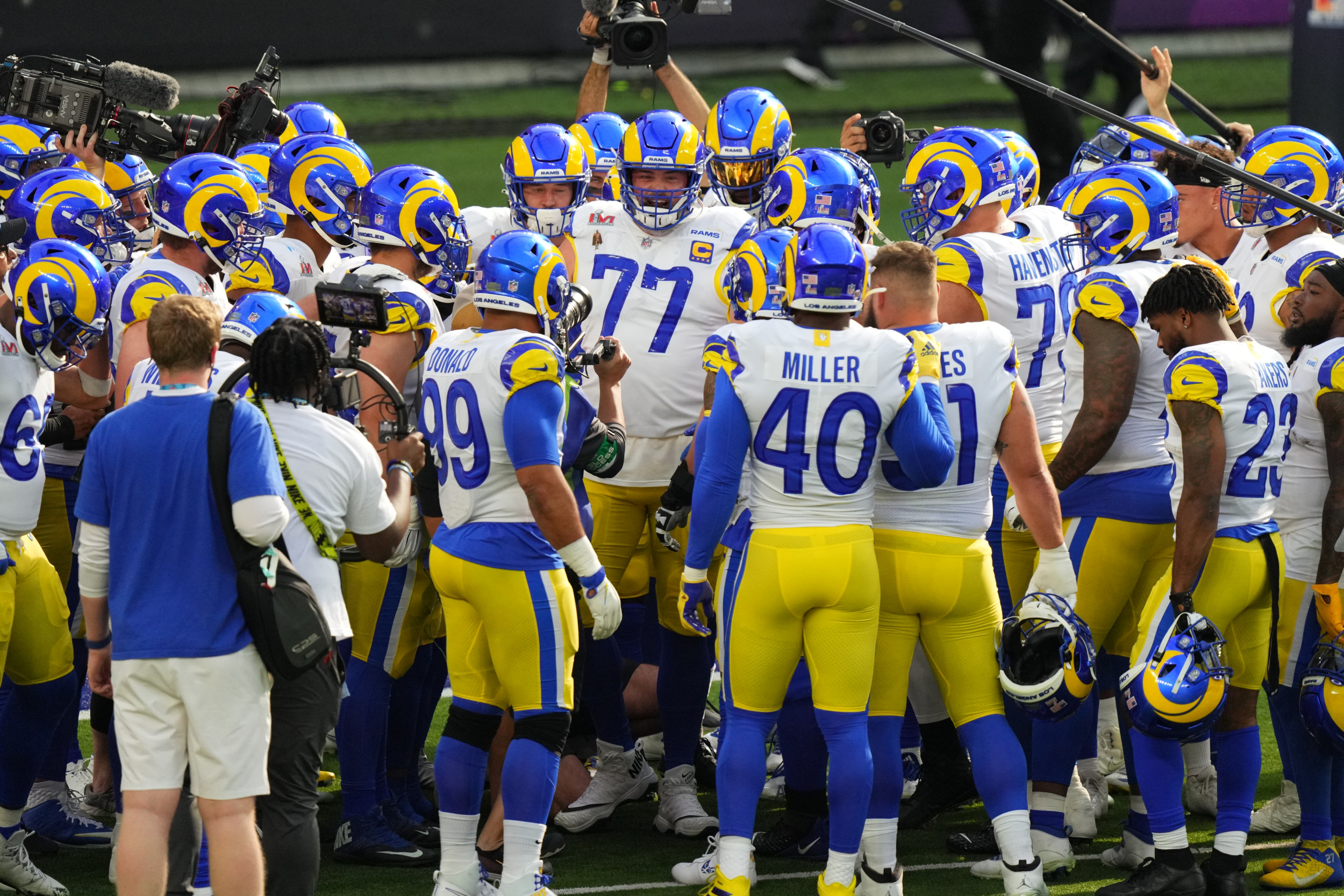[Editor’s note: The recap of episode two publishes December 27.]
Two people made it off the island where the last installment of the Games took place; it remains to be seen whether either of them actually survived.
When we catch back up with Hwang Dong-hyuk’s unexpected global hit Squid Game, in the aftermath of its explosion of popularity; its propagation into the world of Halloween costumes, mobile games, and reality shows; the wide-scale MrBeast-ification of what was once one of the most gut-wrenching satires to hit TV in years, two years have passed, and Seong Gi-hun has gone mad—or near enough as makes no difference. Holed up in a run-down motel, clutching a gun from the moment he wakes, and even running a few little Games of his own—paying his old loan shark billions from his bloodily won prize money to execute a city-wide manhunt for the man who recruited him into the contests in the first place, offering massive prizes to the lucky goon that spots him first—Gi-hun isn’t a man on a mission so much as a man possessed. Lee Jung-jae has taken a scalpel to every ounce of the goofball charm he brought to this character for so much of the Netflix import’s first season, leaving behind nothing but night sweats and steel. Gi-hun spends the long majority of “Bread And Lottery” in a state of coiled passivity, watching, waiting, and occasionally twitching; it’s not until we reach the end of the episode that Lee lets us in on the seething rage still powering the man’s obsessive drive to find the masterminds behind the Games.
Hwang Jun-ho, meanwhile, is—as, I’d argue, he also was in the show’s first season—trapped in a somewhat less compelling Squid Game, the more boilerplate mystery series it always could have been in less consistently capable hands. Having improbably survived the bullet he took to the shoulder after confronting his brother, former Games contestant/current Games Front Man In-ho, last season, Jun-ho has returned to police work, opting to serve in the low-stakes world of traffic enforcement. In his off hours, he works with the fishing captain who saved his life to search for the island the Games were being held on, to no avail. “Bread And Lottery” has a decent chunk of clunky exposition to dole out to get the audience back up to speed, and Jun-ho is often the one stuck receiving it; both the fishing captain, and his former police boss, helpfully explain the circumstances of his own life to him while Wi Ha-joon cheerfully grins along. (The captain found him clinging to a buoy, hence why he didn’t drown; nobody in the cops believes anything about his story, but his boss helped him keep his job. All caught up?) Like later scenes of him infiltrating the loan shark’s offices, or doing other basic detective work, those moments of procedure are probably necessary, but never rise to the level of entertaining. Squid Game has always been at its worst when it lets itself become overly concerned with its larger plot, and, as the face of that side of its formula, Jun-ho is never going to be my favorite part of this series
But enough with plot complaints, or character discussions, or any of that other boring shit: What about the games? “Bread And Lottery” makes you wait for it, not re-introducing Gong Yoo’s unnamed recruiter back into the equation until he suddenly arrives—with the distinctive sound of slap-on-skin—at the episode’s 25-minute mark. Once he’s in play, though, Hwang wastes no time in reminding audiences of the queasy way the agents of the Games blend apparent altruism, simple rules, and underlying cruelty into a cocktail of uncomfortable “fairness.” The first instance might be the most disturbing, for all that it’s the least violent: We (plus the loan shark, and his preferred henchman) watch as the recruiter takes 100 buns and 100 scratch-off lottery tickets down to a park and invites a bunch of people experiencing homelessness to choose: Bread? Or lottery? What’s most distressing about the whole sequence, which gives us lots of looks at Gong’s dead-eye smile, is the way it becomes increasingly clear that the recruiter isn’t doing this as part of his function for the Games. Proving that people will almost always take the chance for big money over the certainty of food in their stomachs is apparently just how this maniac blows off steam.
Gong—who came up in the South Korean rom-com factories before breaking out internationally with his starring role in zombie flick Train To Busan—was a minor, but memorable, part of Squid Game‘s first season. Here, he gets a chance to be far more unhinged, first with his frenzied stomping on the unchosen food in front of the hungry poor, and then when he captures Gi-hun’s agents and forces them to play a bizarre hybrid of Rock, Paper, Scissors and Russian Roulette. There are elements of this later scene (and the paired one where he plays against Gi-hun at the episode’s climax) that tip over into goofy; the forced classical music, specifically, verges on some hackneyed Joker shit. But as the games play out, and the revolver’s cylinder’s spin, Squid Game picks back up that hypnotic rhythm that made it so propulsive in the latter days of 2021, the unsettling intersection between choice, fate, and death that settles in when you realize the rules dictate that one of these lives is inevitably about to end. Part of the reason this show worked then, and works now, is that it knows how to make you feel trapped; when loan shark Mr. Kim is left with the horrible choice between killing his subordinate or dying himself, it’s not clear if he fails to act out of altruism, or terror. What is certain is that he knows he’s about to die.
Which brings us back to those final scenes, and the question of what sort of protagonist Seong Gi-hun will be for this second go-around in the Games. The result of that last Russian Roulette game is never in question—what we get is the only dramatically satisfying way for this kind of story beat to play out—but the arguments Lee and Gong throw back and forth at each other are the real meat for viewers to tear into. Both men acknowledge that whoever’s holding the gun could just shoot the other guy, saving their own life at the cost of violating the rules of the game. We know well enough why the recruiter doesn’t, deciding to die instead of admitting that the strictures he’s so consistently killed in service of are just a bunch of arbitrary bullshit. Gi-hun is much more of a closed box: Does he pull the trigger, with a 50-50 shot at blowing his own brains out, because of principle? A desire for self-worth? Or does he just not give a fuck anymore whether he lives or dies? Lee’s mask of calm is fascinating to look at, showing the slightest flickers around the edges, but it gives me no immediate answers. He tells us that he wants to deliver a message to the people organizing the games; his mask cracks a little as he demands the recruiter admit that he’s just a better-fed breed of dog, living and dying at its master’s whims. But how far is he willing to follow the rules in order to prove they don’t matter? It’s the most compelling question Squid Game has in its arsenal right now.
“Bread And Lottery” is, itself, a beast serving two masters. By default, it must perform the nuts and bolts jobs of getting a second season of a TV show back up and running after a very long three-year absence. (Including introducing a few future game players, such as a couple played by Im Si-wan and Jo Yu-ri, the latter introducing the concept of pregnancy into the Games in a way that makes the skin pre-emptively crawl.) And it must remind audiences why they cared about this show in the first place. The former task it performs inelegantly, slapping down exposition and table setting in a desultory fashion (and with a weirdly incongruous soundtrack). The latter task it nails completely, and compulsively, reminding viewers why this show was able to get their hearts in their throats just by depicting simple games of tug-of-war or marbles. It’s not just the violence; it’s not even the desperation. It’s the way the villains endlessly remind their victims that they chose to be there; that what’s happening to them is happening with their own consent, and is their own fault. That ugly paternalism, which arrives here primarily through Gong’s nigh-unflappable grin, has always been the true horror of Squid Game, and it’s what has me hooked again after so long away from its black and bitter charms.
Stray observations
- • Welcome to our episodic coverage of season two of Squid Game! We’ll be rolling out one new review every day from now until we’ve covered the entire season.
- • Format-wise, I should note that I’m watching the series in Korean with English subtitles. I’m also sticking to a policy of not watching an episode until I’ve finished writing the previous review, so each review should be spoiler-free for future episodes. (No promises about the comments, though.)
- • It could always be a coincidence, but Hwang having the fishing captain repeatedly ask “Captain Hwang” (a.k.a., Jun-ho) where the hell he’s taking everybody can’t help but feel like a bit of meta-commentary from the series creator.
- • Our opening scenes add a nice surreal element to the pre-time-jump material, most notably the bit where a buck-naked Gi-hun cuts some kind of tracker out of the back of his ear while still sporting that bizarre bright red hair.
- • The episode’s plot also plays around with coincidences, or maybe fate, including the part where Jun-ho almost runs into Gi-hun after he gets pulled over for speeding.
- • Interesting weird visual touch, for an episode that mostly stays in the real world: The recruiter gagging the loan shark and his henchman with rubber gags shaped like dog bones. (See also the fake clouds of Gi-hun’s hotel window, which mimic the surrealist backgrounds of the Game grounds.)
- • I can’t read the show’s credits, so unfortunately I can’t find out if Park Hae-soo and Jung Ho-yeon came back to play their own severed heads in Gi-hun’s dream sequence. One can only hope.
- • And if you want my basic critical read on the show’s first season—including the masterstroke of its second episode, “Hell”—I wrote an essay about it here.




















 English (US) ·
English (US) ·